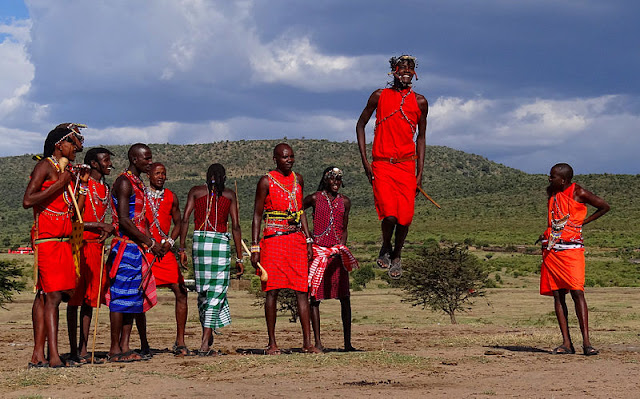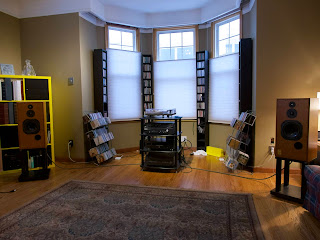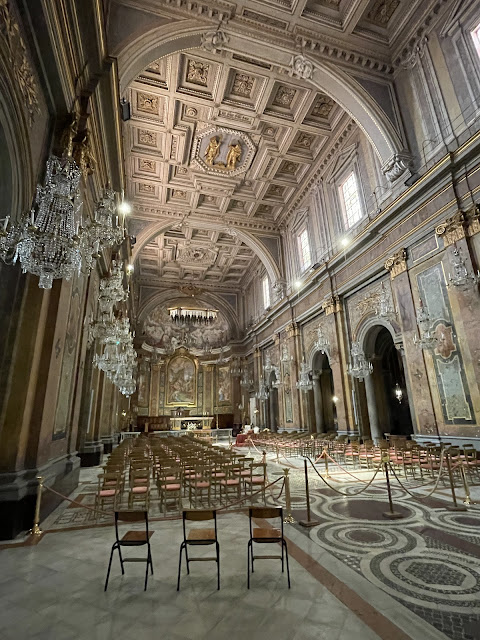Copyrighting Culture
A very interesting news story was carried by the BBC today. The Massai Tribe in Africa has been bringing its leaders together to see if they might consider copyrighting some aspects of their "intellectual property".
Copyright law is normally used to ensure that those who develop ideas can both benefit from them and use them effectively. It also provides clarity about who does what, which is essential in developing businesses. I won't know who to buy from if I don't know who does what.
The music "industry" does this for creative art. Debates have raged from the beginning of mass distribution of music about all of this. Many classical composers, for example, suffered because their music was copied by others and published without any royalty.
The BBC story is interesting for other reasons, however. I am certain that there is some desire to benefit economically, but the deeper question really is about the nurturing of culture in a world that provides instant communication and potential commodification of everything. How many videos are posted online that take some people's misery and make it the vehicle of entertainment for others? Social media focus on numbers, because that's how they can develop their business models. How many "friends" do you have? What products do you "like"? All this quantification renders our own interests and friendships in a very flat way and it begins to affect how we perceive ourselves and others. It changes our culture.
In ancient times, the people of Israel and many other ancient cultures felt the need to record -- to write things down. Long before these things were recorded, however, they were part of the shared experience of a people. The creation account in Genesis was spoken long before it was written. When it became written it both protected the story and solidified it. In a way it has become a root in the development of many peoples now.
The internet and cell phone penetration are gaining strength in Africa and many other places where oral cultures remained strong well into the 20th century. While these electronic forms of communication can be and are very liberating in many respects they do pose a real danger of homogenization. Cultures all around the world are all going to look more and more the same. It is a positive development that we can now learn from each other so much and so relatively easily, but it is also a great loss if we lose the intelligence, the richness and humanity of so many diverse cultures that have developed over hundreds and even thousands of years. It is the equivalent of losing our biodiversity.
So this move to protect their culture is also a move to continue to have ownership over it, to remain the guardians and stewards of that richness. In an affluent West we too easily give our cultural intelligence, richness, beauty and humanity away and instead seem increasingly focused on the kind of stimulation that can propel economics. The Massai realize that this is a critical question -- one of survival and one that is just as real for us.
Whether, therefore, it is music, art, sciences, religion or the respectful democratic institutions that describe our society we need to take measures that will keep these great positives at the forefront of our common life. It seems a shame that the obvious vehicle is copyright law. And maybe this says something to our music industry as well. Perhaps the time has come to institutionalize art and culture in new ways. And artists who are very diverse within our own culture perhaps need to take greater cognizance of their own role in the common good, of the society and of fellow creative people whose gifts will help us all to see hope and to learn from one another.
Copyright law is normally used to ensure that those who develop ideas can both benefit from them and use them effectively. It also provides clarity about who does what, which is essential in developing businesses. I won't know who to buy from if I don't know who does what.
The music "industry" does this for creative art. Debates have raged from the beginning of mass distribution of music about all of this. Many classical composers, for example, suffered because their music was copied by others and published without any royalty.
The BBC story is interesting for other reasons, however. I am certain that there is some desire to benefit economically, but the deeper question really is about the nurturing of culture in a world that provides instant communication and potential commodification of everything. How many videos are posted online that take some people's misery and make it the vehicle of entertainment for others? Social media focus on numbers, because that's how they can develop their business models. How many "friends" do you have? What products do you "like"? All this quantification renders our own interests and friendships in a very flat way and it begins to affect how we perceive ourselves and others. It changes our culture.
In ancient times, the people of Israel and many other ancient cultures felt the need to record -- to write things down. Long before these things were recorded, however, they were part of the shared experience of a people. The creation account in Genesis was spoken long before it was written. When it became written it both protected the story and solidified it. In a way it has become a root in the development of many peoples now.
The internet and cell phone penetration are gaining strength in Africa and many other places where oral cultures remained strong well into the 20th century. While these electronic forms of communication can be and are very liberating in many respects they do pose a real danger of homogenization. Cultures all around the world are all going to look more and more the same. It is a positive development that we can now learn from each other so much and so relatively easily, but it is also a great loss if we lose the intelligence, the richness and humanity of so many diverse cultures that have developed over hundreds and even thousands of years. It is the equivalent of losing our biodiversity.
So this move to protect their culture is also a move to continue to have ownership over it, to remain the guardians and stewards of that richness. In an affluent West we too easily give our cultural intelligence, richness, beauty and humanity away and instead seem increasingly focused on the kind of stimulation that can propel economics. The Massai realize that this is a critical question -- one of survival and one that is just as real for us.
Whether, therefore, it is music, art, sciences, religion or the respectful democratic institutions that describe our society we need to take measures that will keep these great positives at the forefront of our common life. It seems a shame that the obvious vehicle is copyright law. And maybe this says something to our music industry as well. Perhaps the time has come to institutionalize art and culture in new ways. And artists who are very diverse within our own culture perhaps need to take greater cognizance of their own role in the common good, of the society and of fellow creative people whose gifts will help us all to see hope and to learn from one another.


